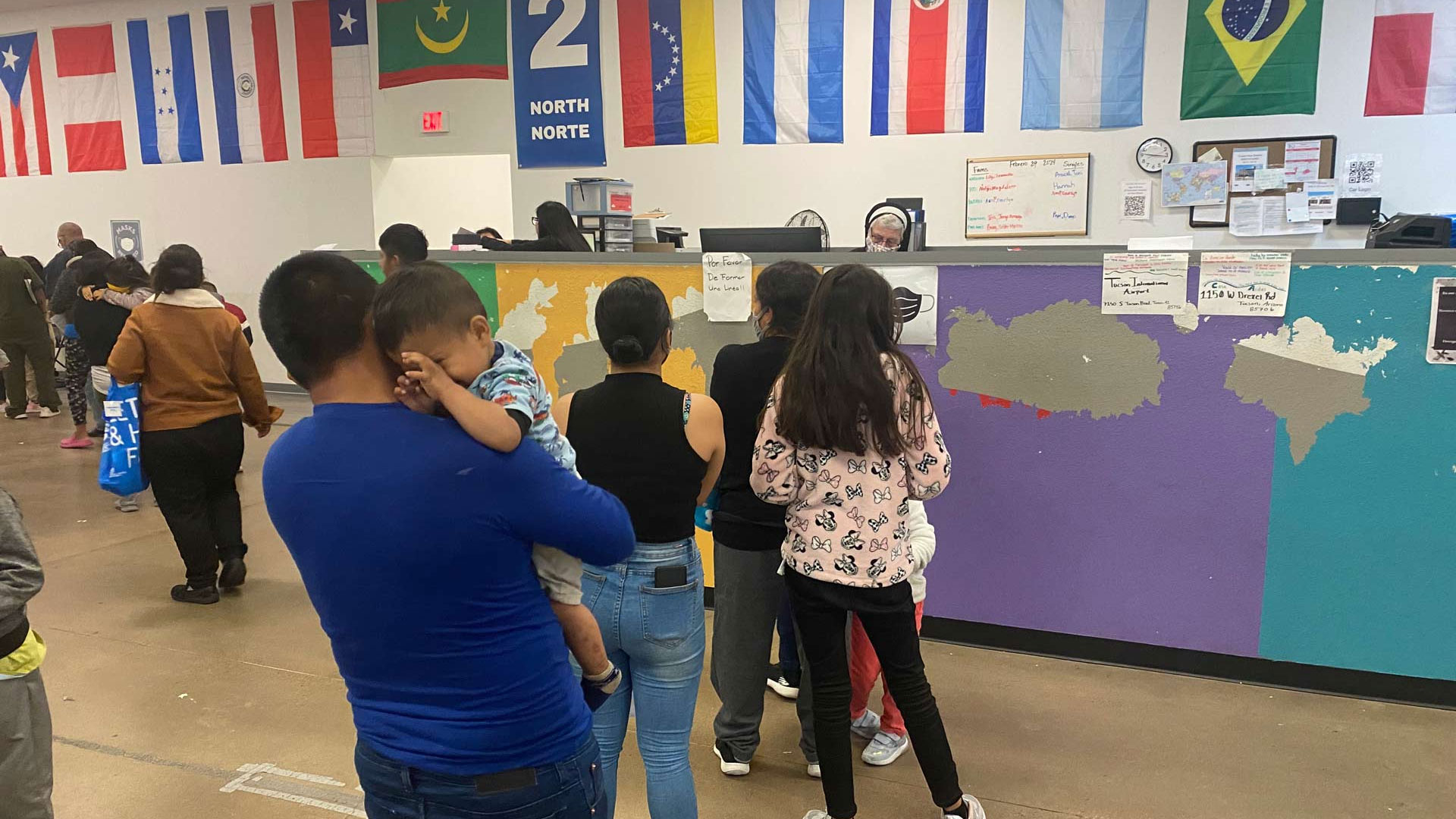 VIEW LARGER People wait for assistance at a shelter that's part of the Casa Alitas program on March 1, 2024.
VIEW LARGER People wait for assistance at a shelter that's part of the Casa Alitas program on March 1, 2024. Danyelle Khmara, AZPM Neews
Pima County is planning to end some of the services it provides for migrant services.
A memo from the Pima County Administrator to the Board of Supervisors says the contracts are coming to an end between March 31 and April 5 for transportation from small communities like Nogales and Douglas to the more robust services in Tucson, as well as for the more than 4,000 meals the county serves asylum seekers each day.
Another contract coming to an end in mid-March is for the hotel where asylum seekers go to quarantine when they test positive for COVID-19.
Since mid-September, the county-run services have supported an average of nearly 1,300 people arriving a day who stay an average of two nights.

By submitting your comments, you hereby give AZPM the right to post your comments and potentially use them in any other form of media operated by this institution.